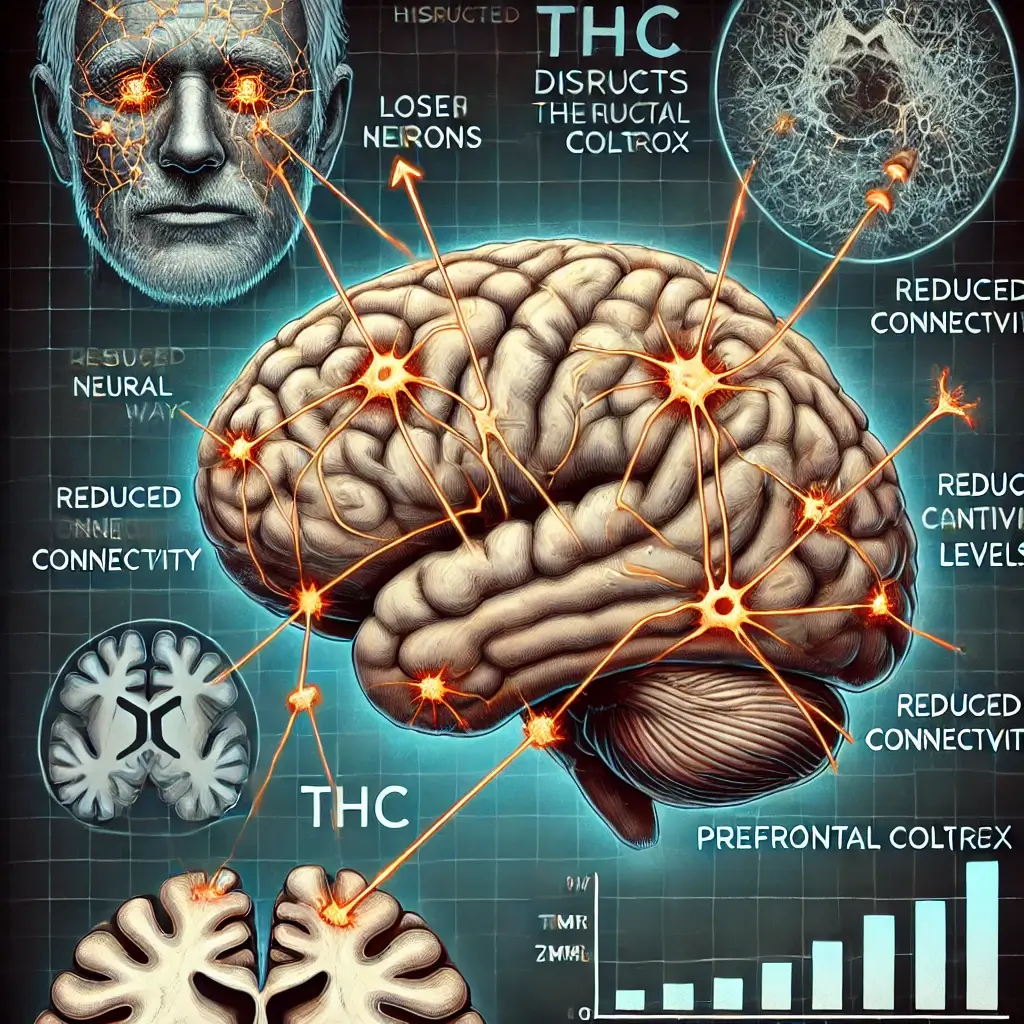Unveiling the Neurological Impact: How THC Alters Brain Function and Cognition
The Impact of THC on Brain Connectivity
THC can disrupt brain activity, particularly in the prefrontal cortex, which is responsible for decision-making, memory, and self-control. Functional magnetic resonance imaging (fMRI) scans have indicated that tetrahydrocannabinol (THC) impairs brain cell connections and communication, notably in the prefrontal cortex. This brain area is considered important for higher-order cognitive skills like decision-making, problem-solving, and impulse control.
Cognitive Impairment and THC
The observed decrease in neuronal connection and communication within the prefrontal cortex suggests a biological basis for the brief cognitive impairment frequently experienced by cannabis users. When THC interacts with the brain’s endocannabinoid system, it can disrupt normal prefrontal cortex function, causing difficulties with tasks requiring focused attention, logical reasoning, and executive control.
Emotional and Perceptual Effects of THC
The prefrontal cortex modulates emotional reactions and integrates cognitive and affective processes. The weakening of connections in this brain region may contribute to the altered perceptual experiences, mood alterations, and emotional states that are typically linked with cannabis use.
Variability in THC Effects
It is crucial to remember that the effects of cannabis on the brain can be complicated and variable, depending on factors such as dosage, heredity, and prior cannabis usage. Nonetheless, fMRI studies show that THC has a major impact on the brain pathways controlling cognitive and executive functions, which may have crucial implications for understanding the acute and long-term effects of cannabis usage.
THC and Prefrontal Cortex Stability
THC reduces the stability of these connections in the prefrontal cortex. This may impair the brain’s ability to adapt and respond effectively to new situations or shifting inputs.
Decreased Brain Activity and Its Consequences
Research shows that THC is associated with a decrease in activity in the prefrontal brain. This may contribute to sluggish thinking and decreased judgment. These potential consequences are crucial, especially if you’re involved in activities that need concentration, clear thinking, or quick decision-making.
